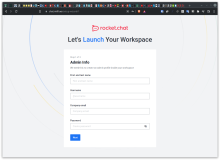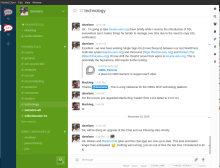Install Rocket.Chat on Ubuntu 20.04 via Docker Compose
This post is a companion to our video tutorial on installing Rocket.Chat 4.x on an Ubuntu 20.04 server via Docker Compose.
We start with a Docker Compose-configured server. You can also see our video tutorials on how to create one: complete, or starting from a DigitalOcean 'snapshot'.
Upgrading RocketChat to 1.0.x and MongoDB to 4.0
With the recent release of Rocket.Chat 1.0.x (after a couple years undergoing development at a fairly blistering pace), it's time for many of us to upgrade!
Previously, I showed how to install Rocket.Chat via Docker Compose but that was a much earlier version of Rocket.Chat and version 3.4 of MongoDB, which is now quite old (by FOSS standards at least). And it turns out upgrading everything has a few gotchas, so here's how I managed to do it.
Docker Compose: A better way to deploy Rocketchat, Wekan, and MongoDB
A few months back, I posted instructions on deploying Rocket.Chat and Wekan instances (and their mutual dependency, MongoDB) individually. Since then, I've spent some time with Docker Compose, a set of scripts which help you to define, build, and manage a set of Docker containers. Docker Compose is a thing of beauty. This is the way I now deploy Rocket.Chat, Wekan, and MongoDB together.
Installing Rocket.Chat with Docker on Ubuntu Linux 14.04
Rocket.Chat is a modern, open source messaging application which is functionally similar to a popular (and heavily marketed) proprietary tool called Slack.
Upgrading your Docker Apps: MongoDB, Wekan, and Rocket.Chat
(Update 2017-05-24: see an easier way to run Wekan, Rocketchat, and MongoDB) You may not have all of these installed, but if you're running Wekan or Rocket.Chat based on our instructions, you'll also have MongoDB, and the need to keep them all up-to-date to benefit from their rapid development processes (quick bug fixes and new and improved features every few days!).


